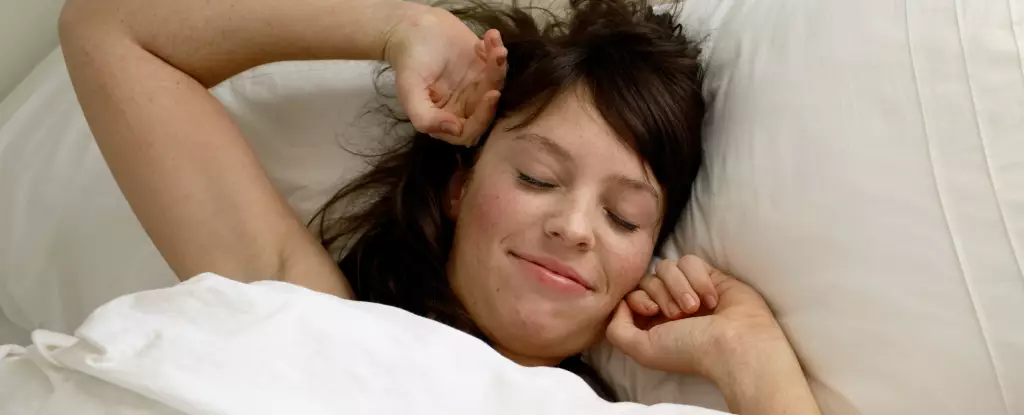The idea that sleep can confer private advantages in problem-solving and creativity has been echoed through literature, science, and anecdotal evidence from renowned figures. John Steinbeck’s assertion that a problem that confounds us at night may seem more manageable by morning resonates with the lived experiences of many. In recent years, scientific studies have reinforced these age-old beliefs, suggesting that while we sleep, our brains engage in a complex and beneficial reorganization of thoughts and experiences.
Insights from contemporary research support claims that our subconscious mind works through issues while we rest. For instance, a Duke University study in 2024 examined how pre-sleep choices yield different outcomes when participants revisit those choices after a night of sleep. This innovative study highlighted the impact that first impressions have on decision-making, showing that, under duress, individuals often assess scenarios based on limited initial impressions. A good night’s sleep, however, seems to mitigate this issue, enabling subjects to make more balanced and rational decisions upon awakening.
Participants engaged in a structured game, where they had to evaluate various virtual items hidden within ‘garage-sale’ boxes. The tempo of choices changed depending on the urgency created by the scenario. When decisions were rushed, participants fixed their gaze on the initial objects they encountered, resulting in choices that lacked comprehensive analysis. The following day, those who had slept before making decisions exhibited a much greater capacity for rational evaluation, demonstrating that sleep creates a buffer against impulsive reasoning.
The concept of “sleeping on it” gains further weight when we consider another standout research endeavor conducted in 2019, where sound cues were administered to participants riddled with unsolved puzzles during their slumber. When participants returned the next day, those who experienced relevant audio cues showed considerable improvement in their problem-solving abilities. The findings suggested that sleep functions as a state of active processing, enhancing the brain’s innate ability to connect dots more effectively than it would have during conscious contemplation.
Investigations into cognitive improvements facilitated by sleep also consider the diversity of insights individuals derive from their dreams. A significant 2023 study focused on how sleep helps reveal hidden relationships between seemingly unrelated items. The researchers discovered that individuals who underwent a full night of rest exhibited stronger performance in identifying indirect associations among items. This showcases a remarkable capability of sleep to unlock the cognitive potential that often lies dormant during waking hours.
Thomas Edison, a luminary in the realm of invention, famously capitalized on the creative advantages of brief naps. He would take power naps while clutching a ball, allowing it to inadvertently wake him when he dozed off, creating a liminal state crucial for his innovative thinking. This phenomenon of finding clarity in transitional sleep states is echoed in contemporary scientific inquiry. Research in 2021 confirmed that participants who entered a light, brief phase of sleep while grappling with a math problem found better solutions, as their brains engaged with the problem differently than when fully awake.
The intriguing aspect of hypnagogia, the term used to describe the threshold of sleep onset, is generating attention for its potential to enhance creativity. In one 2023 study, researchers tested the correlation between hypnagogic imagery and creative problem-solving tasks. Participants who were tasked with thinking about trees experienced a notable boost in creative outputs when their hypnagogic imagery corresponded to their pre-sleep activities. This compelling finding implies that even the content of our dreams can assist in navigating creative challenges when we wake.
What emerges from this accumulation of research is a deeper understanding of the interplay between sleep, cognition, and creativity. Rather than merely being a passive state devoid of active thought, sleep is emerging as a vital partner in our quest for problem-solving and innovation. Individuals in technical or creative fields may find it invaluable to incorporate scheduled sleep breaks into their routines, as the latest studies posit that a refreshed mind is not only more efficient but can also lead to unexpected breakthroughs.
In a world that often prioritizes hustle and relentless productivity, the emerging narrative around sleep serves as a powerful reminder of its hidden potential. From ancient wisdom mirrored in literary quotes to groundbreaking modern research, the consensus presents sleep as a genuine tool for enhancing decision-making and problem-solving abilities. As we continue to explore our own thresholds of creativity and insight, the invitation is clear: never underestimate the power of a good night’s sleep in facilitating life’s challenges. When we embrace the restorative nature of sleep, we prepare ourselves to face challenges with renewed clarity and creativity, effectively transforming the mundane into the profound.


Leave a Reply